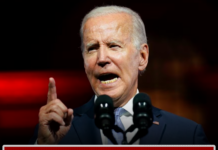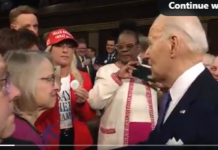Judicial Watch president, Tom Fitton, appeared on American Agenda on Newsmax to talk about what state legislatures can do in terms of the Electoral College if they believe the Presidential Election is compromised in their state.
“Under our system, we don’t have the right to vote under the Constitution for the Presidency,” Fitton said. “We have that right to vote because the state legislatures, who ultimately decide who the electors are to go to the Electoral College, have authorized citizens to exercise the franchises in that regard.”
And, he added, if an election is compromised, state legislatures still have the power under the Constitution to step in.
“If the Pennsylvania state legislature thinks that what happened in Pennsylvania, as compromised as what the lawful result is, they can appoint what I would call a clean slate of electors or choose not to appoint electors at all,” he said.
Congress can also object to elector slates from states where elections have been called into question. In a scenario where the governor of a state appoints electors different from the electors appointed by the state legislature, Fitton said it would be up to Congress to figure out which slate to endorse.
“So, it’s not over frankly until Congress decides these outcomes in January,” he said.
Fitton also took an issue with the position that state legislatures have to wait until they receive permission from the governor to meet.
“The argument is, ‘well, they can’t do anything about the elections because the governor has not called them into session under their respective state laws,” he said. “That requirement is at odds with the constitutional power granted to the legislature to decide who the electors are. It’s my view, and it would be unusual circumstances, but the law in the Constitution would allow the legislature to take whatever step they deem necessary to approve electors with or without the governor’s approval.”















